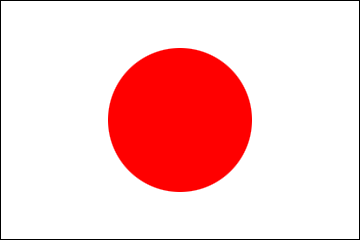Japanese Cultural Grant Aid
Japanese Cultural Grant Aid (JCGA) is a newly introduced scheme in 2005 combining the former CGA and GACH whereby up to ¥300 million per project can be granted to cover the procurement cost of equipment to be used for various cultural and higher educational activities including the cost of equipment transportation and installation as well as construction and renovation of facilities. Since its launch from FY 1975 up to FY 2004, Japan granted a total of ¥51.8 billion for 1,257 projects in 126 countries/areas under this scheme. In the Philippines alone, 44 projects amounting to about ¥1857.8 million have already been implemented.
Subject Countries
The subject countries of the scheme are developing countries of which the GNP per capita is not more that US$5,294 (in 2005).
Recipients/Eligible Institutions
The JCGA donates funds directly to the governments of the recipient countries. Therefore, eligible institutions shall be government agencies and public organizations in the recipient countries since it is necessary to place responsibility for the management and maintenance of the project within a government-related organization.
International organizations that plan to distribute equipment among several countries and private institutions, including private universities are not deemed to be eligible recipients. For projects in which equipment is distributed among several facilities and which come under the supervision of more than one organization, a single organization is required to take responsibility for the management and maintenance of such equipment.
- Language-lab equipment for Japanese language study, etc.
- Equipment for educational facilities: Audiovisual equipment, experiment equipment, equipment for producing teaching materials, etc.
- Equipment for the preservation of cultural assets and relics: Excavating equipment (cranes, stone processing equipment), survey equipment (radar devices, x-ray analyzers), equipment for preserving cultural assets, etc.
- Sound and light equipment for theaters, exhibiting equipment for museums, audiovisual
- Broadcasting equipment
- Sports equipment: Equipment for judo, gymnastics, athletics, etc. (excluding consumable/expendable supplies such as balls and rackets)
- Musical instruments:
- Program software: Basically documentaries and items for use in higher education (excluding children's programs and programs for use in lower grades)
- Cost of constructing or renovating facilities
Ineligible Items and Equipment
- Operating expenses
- Staff salary
- Electricity and water consumption
- Rent for homes or office
- Fuel and/or gas for vehicles
- Consumables (supplies, etc.)
- Equipment for proponent's office (e.g. stationery, photocopy machines, personal computer, printer, fax machines, cellular phones, etc.)
- Furniture, air-conditioners, crime-prevention devices, and generators in facilities
- Vehicles
- Land purchase
- Animal dispersal
- Funding for research and/or project conceptualization
- Funding for missionary projects, political activities or activities related to elections, commercial projects, and projects supporting specific doctrines or ideologies, or military projects
- Payment for VAT, customs and duties, registration/license/certification fees, etc.
Responsibilities of the recipient country
- The recipient country defrays and takes responsibility for domestic transportation.
- The recipient country defrays and takes responsibility for providing facilities necessary for the installation of the equipment. (The cost of installation itself will be covered by the grant.)
- The recipient country defrays maintenance and management costs for the equipment.
Application Process
Project proposals from eligible organizations must be submitted to Northeast Asia Division, Office of Asian and Pacific Affairs (ASPAC) Department of Foreign Affairs (DFA) of the Philippines - the organization acting as a window for the Philippines.
Necessary documents to be submitted:
1. Application form
2. Reference materials to explain overview and status of applicant
3. Reference materials to explain overview and status of project
4. Screening format based on JICA Guidelines for Environmental and Social Consideration
Application Form
The application format sample for the proposal may be obtained from the ASPAC, DFA or the Japan Information and Culture Center (JICC), Embassy of Japan. It may also be downloaded by clicking on to the following link:
Contact Information:
Japan Information and Cultural Center (JICC), Embassy of Japan
2627 Roxas Boulevard , Pasay City 1300
Tel #: (02) 8551-5710 local 2313
Fax #: (02) 8551-5784
E-mail:jicc-mnl@ma.mofa.go.jp; kouhou@ma.mofa.go.jp
ASPAC, Department of Foreign Affairs
2330 Roxas Boulevard , Pasay City 1300
Tel #: (02) 8834-3163
Website: http://www.dfa.gov.ph

 (40KB)
(40KB)